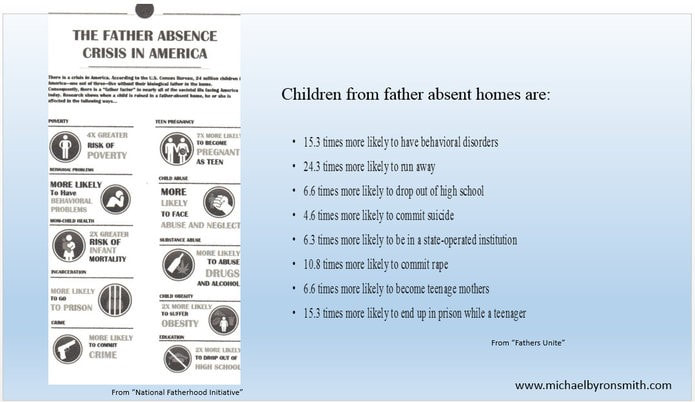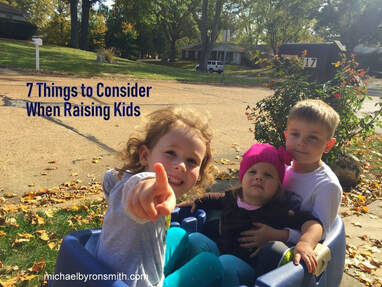 A Lake Michigan Sunset
A Lake Michigan Sunset Married men and/or fathers take a beating in many circles. Not that men don’t deserve some of it, but I will explain. Before I begin, this is not going to be an anti-woman stance. I don’t push feminist doctrine, but I am very pro-woman. Most of the important people in my life are females. They raised me, they comforted me, and have given me great joy. In short, I very much respect women. On the other hand, when I have had trouble, most of it came from, or because of, men. That’s just me, not everyone. However, men often get what we used to say when I was a kid, “the short end of the stick” when family issues are discussed. Oftentimes, men are ridiculed in ways women would never be. Yes, there are blond jokes. But we don’t really assume someone is dumb just because they are blond - not anyone with a lick of sense, and they are rarely our moms.
TV Shows
In family oriented TV shows, for instance, men are shown to be idiots, buffoons, lazy, and/or self-centered. ‘Everyone Loves Raymond” is a classic example, as is “Homer Simpson”, “Two and a Half Men”, “Bob’s Burgers”, and “Married…with Children”. I enjoyed all these programs and wonder if they would have been successful if it had been focused on the shortcomings or buffoonery of women. The one TV program that came close to this was from the 1950’s, “I Love Lucy”. Lucy, however, was much more loveable than Raymond or Al Bundy, in my opinion.
Commercials
In commercials, it’s men who are always being rescued by their wives, daughters, or moms. In “The Boy Crisis”, author Warren Farrell states, “…virtually 100 percent of TV ads that portray only one sex as a jerk portray the man as the jerk.” A 2016 Super Bowl commercial shows a dad distracted with his Doritos while a female doctor and mom look at the ultrasound of their child as they wonder how they put up with his behavior. Any commercial that would belittle the skills or knowledge of a woman like this would never make it on TV. I understand this. Women are the main consumers of TV products so it works to downplay the attributes of men.
Does it bother me that men are often belittled on TV programs and commercials? No. I can take it and smile. Few men complain about how they are portrayed. But it doesn’t help young men who watch these commercials and assume their dads are like this. What does bother me is the wrath that would exist if it were the other way around. I’m very happy it isn’t the other way around, i.e. men being the smart ones, men showing women which water filter is best. It would make me cringe a bit. Men and women, as groups have their strengths and weaknesses. We should recognize that but not be married to the notion either of us are helpless. All of us can find instances, no matter our sex, when we are in need of help.
Family Heroes
When discussing their lives in speeches, most speakers credit their mothers as the backbone of their family. It was factually true in my upbringing that my mother was our backbone, as is true in many other families. However, the truth of the matter is most families had a backbone of a mother and father molded together to perform what each does well. But it’s the mother who is most commonly considered the backbone. I have no issue with this trend. But I can’t imagine it would be socially acceptable to say men were the backbone of most two-parent families. When in doubt, go with the mom.
The Courts
Men, as fathers, take a beating in the courts as is sometimes appropriate. In circumstances that are not so obvious, it is the mother who is most often awarded custody of the children even when the father wants custody himself. Whereas Moms have a right to their children, Dads have to fight for their children. In 2013, just one of every six custodial parents (17.5 percent) were fathers according to US Census Bureau. We can factor in the remarkable parenting skills of most mothers and that is still a lopsided statistic. Everyone has heard the term “Deadbeat Dad”, but you never hear the term “Deadbeat Mom”. The area of child custody is one area where a sense of humor doesn’t help. The good news is more fathers are getting custody and visitation rights than in the past.
Summary
Fewer people today want to admit that men and women are different, even to the point of confusion. (Some push the narrative that there are 70+ genders.) Strengths are not usually owned by one sex or the other, but they can be predominant in one or the other and this fact has repercussions and advantages. The honor, ability and burden to bear children has naturally been a factor in women’s social standing. The truth is that men have had the advantage in the boardroom, and women have had the advantage in the courts, both in law and public opinion through the media. In both of those situations, the trends are reversing. More women in the boardroom means more men at home. This works well when both are where they most want to be. Changing social standards will allow them to be where they feel is best for their family and to feel good about it. Life is not fair; it doesn’t have a conscience. Women have disadvantages and have been mistreated, but men also experience these things. We rarely talk about the issues men face.
Yes, fathers need a sense of humor, and not just with their kids. #powerofdadhood















